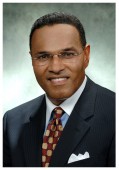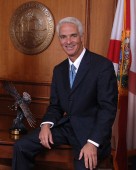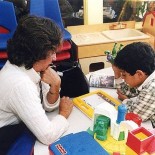What’s the best way to train and certify teachers?
With education schools under attack and growing numbers of teachers entering the profession through alternative certification programs, New York State may be poised to allow programs like Teach for America and others to create their own master’s degree programs. The New York State Board of Regents would award the degree.
Newly minted teachers who have entered alternative certification programs like the New York City Teaching Fellows from other professions (some with law, medical and other advanced degrees) will likely cheer this development, reported today by The New York Times in a front-page story. Some have complained about having to go back to an education school for a master’s degree while learning the ropes of becoming a teacher on the job.
The proposed changes come at a time when just a handful of states allow alternative programs to certify their own teachers. They also come as education schools have been criticized for not doing enough to prepare teachers for the realities of classroom life. U.S. Education Secretary Arne Duncan said last fall that most education schools do “a mediocre job.”
New teachers trained in other ways, though, also don’t always get the tools they need to succeed. A national survey released in February by the Woodrow Wilson National Fellowship Foundation found shortfalls in both preparation and support of those who changed careers to become new teachers.
And there are still career-changers and others who believe in the value of traditional education school programs. The story quoted a 26-year-old systems analyst who chose Teachers College over Teach for America because she wanted more training — and she got it in the form of mentoring that will help her to become “the teacher I want to be.”
When neighborhoods change, what lessons can schools learn?

Lafayette history teacher Patrick Compton wonders if his school has lessons for South Philly High (Philadelphia Inquirer photo by Ran Tarver)
Every now and then, events at one school have an uncanny resemblance to what has taken place at another. That was the case at Lafayette High School, a once-cavernous neighborhood institution at the tip of Brooklyn that served a largely Italian and Jewish population. Its sports teams at one point were nicknamed “the Italian Army.” Famous graduates ranged from the singer Vic Damone to slugger Sandy Koufax.
South Philadelphia High served a similar population. Then over the years, both neighborhoods changed radically, absorbing new waves of Asian immigrants. The newcomers did not settle in easily. In both cases, violence resulted. The Hechinger Report takes a look at what happened at both schools in a story in today’s Philadelphia Inquirer, and the key question throughout is what can be learned.
“As neighborhoods change, schools have to change, and unless they address the needs of a new population systemically, the problems are just going to be reflected back into the schools and repeat themselves,” Lafayette history teacher Patrick Compton points out in the story.
But can they? Lafayette is closing forever in June; the school has already been broken up into smaller, themed academies. At South Philadelphia High, however, the questions — and the problems — remain.
Does doing math give you goosebumps?

Freeman Hrabowski, III, President of UMBC
His teaching career began at age 19, when he was working on his master’s degree in mathematics at the University of Illinois (Urbana-Champaign).
Forty years later, Freeman A. Hrabowski, III is President of the University of Maryland, Baltimore County (UMBC), a position he has held for nearly two decades.
I had the pleasure of hearing Dr. Hrabowski speak yesterday at the Washington Policy Seminar of the Institute for Educational Leadership, which runs the Education Policy Fellowship Program (EPFP) of which I am part.
Hrabowski spoke with great enthusiasm and insight about many of the pressing educational issues facing our country. He brought the crowd to laughter by saying, “I get goosebumps doing math!” — but then he struck fear in our hearts by asking each of us to do a math problem. If there are 29 kids in a class, and 20 of the kids have dogs while 15 have cats, how many kids have both? (Hrabowksi said the question comes from the College Board and was originally written for sixth-graders, which of course served to raise the anxiety level of those in the audience who had no idea how to approach it.)
He was less interested in having us answer the question than in helping us remember what it feels like to be a young child or teenager who doesn’t even know where to begin a problem. He also wanted us to think about why it is that most educators love to read and believe there’s something wrong with those who don’t — but the vast majority of us don’t love math and find it perfectly acceptable if other people don’t either.
I worked out the problem while still listening to his speech and taking notes, and here’s the answer I came up with: at least six of the 29 kids. (And at most 15 — for each of those who has a cat might also have a dog.) Hrabowski wouldn’t tell us the answer, so I’m not 100 percent certain I solved it correctly.
Hrabowski also spoke of “neoteny,” which he said is a term from biology indicating the characteristic of being forever young — always asking questions, and never growing negative or cynical. The point was we all need a little more neoteny in our attitudes.
Among the other insights Hrabowski imparted to us was the fact that the U.S. doesn’t suffer from just one achievement gap. The well-known achievement gap between low-income, mostly minority children on the one hand and middle-class white children on the other hand is the domestic achievement gap; internationally, there is another achievement gap, and this one is between America’s best and the world’s best. U.S. students generally lack focus and a hunger for knowledge, Hrabowski said, and this reality is reflected in the results of international exams like the OECD‘s Programme for International Assessment (PISA) and the Trends in International Mathematics and Science Study (TIMSS).
Two final thoughts courtesy of Hrabowski: 1) “Enlightened education must involve collaboration”; and 2) “There are no more important skills than reading and thinking — and I say this as a math teacher. They’re at the core of everything we do.”
By the time Hrabowski finished answering our questions and we gave him a standing ovation, there was no doubt why Time magazine named him among the top 10 “Best College Presidents” last year.
What will teacher tenure in Florida look like now?

Gov. Crist back in favor with teachers
Gov. Charlie Crist’s announcement on Thursday that he would veto a bill linking teacher pay to student test scores left some hurt feelings and some new questions. There may also be lessons for any states considering similar legislation.
“I say we must start over,” the Republican governor said, according to several news accounts. “This bill has negatively affected the morale of our parents, teachers and students.”
It is too early to say what starting over will look like in Florida, where the bill would have ended traditional tenure for teachers hired after July 1 and tied teacher salaries directly to student performance on tests.
Reaction was instant and in many ways predictable; teachers’ unions praised Crist, while Republican lawmakers expressed disappointment.
But the real questions begin now. Crist expressed concern that the bill didn’t address special education students and teachers, and said its execution had been flawed. He did say he wanted to address the issue of merit pay again.
One lesson he learned: Teachers and their unions can be powerful opponents. According to a story in the Tampa Tribune:
“Teachers, students and other opponents flooded the governor’s office with tens of thousands of messages lambasting the bill for overemphasizing testing, robbing teachers of job security and ceding local districts’ control over schools to the state.”
— Liz Willen
Teachers under fire in New Jersey
Teachers and their unions are under a lot of pressure to accept changes in terms of employment and compensation. Salaries, pensions, health benefits and layoffs are being discussed in many states in response to state budget deficits. Tenure, evaluations, training, performance pay and bonuses are on the table as levers to raise the overall effectiveness of teachers.
And then there’s New Jersey, where, in the words of an article in The Record newspaper, Republican Gov. Chris Christie has made teachers “a particular target of the administration as it looks to close an $11 billion budget gap.” Christie is proposing that, starting Aug. 1, teachers and other public employees contribute to the cost of their health benefits in retirement. He’s also asked that teachers accept a one-year pay freeze. (Few locals have agreed.) Earlier legislation requires new employees to contribute to the cost of their benefits. The New Jersey Education Association has fought hard over the past decade against proposals for teachers to contribute to the cost of their health benefits. The union is outraged over Christie’s stances. Teachers have marched and protested, and are running ads. One union local president even wrote to his members that he was praying for Christie’s death. The governor has called on the union to fire that official.
New Jersey teachers earned, on average, $63,000 during the 2008-2009 school year, according to the National Education Association. Only teachers in New York, Connecticut, Massachusetts and California are paid more. It’s expensive to live in all of those states. But over the past decade, teachers’ salaries in New Jersey have grown more slowly than they have elsewhere. Relative to inflation, New Jersey teachers’ salaries have gone down about 6 percent over the past decade.
— Richard Lee Colvin
One way to measure teacher effectiveness: memories?
With so much debate over what makes teachers effective, it was refreshing to read a tale from Pulitzer Prize winner Kathleen Parker that looked at her own specific memory of a life-changing teacher.
The piece in The Washington Post comes at a time when everyone, from governors to state legislatures, is discussing how to measure the work that teachers do. The New Teacher Project is arguing that seniority should not be considered when decisions are made to lay off (or “excess”) teachers, and that experienced teachers are not necessarily better. As HechingerEd noted earlier this week, Colorado is considering major changes to state teacher-tenure laws. And Florida is considering a bill that would tie teacher tenure to test scores.
Parker wrote about a teacher whose influence she still feels not just because she won the highest honor in journalism. In “A sprig of verbana and the gifts of a great teacher,” she reflected on Mr. Gasque, the teacher who restored her confidence as a new student in South Carolina. Her motivation to write this piece came in part because President Barack Obama is speaking out about the importance of good teaching.
“One of President Obama’s consistent education themes has been the wish that every child cross paths with that one teacher who hits the light switch and changes one’s life,” Parker wrote. And then she described how Mr. Gasque turned on her light, and what he did when she answered a question in a way that caused her new classmates to collapse in laughter.
“He whirled.” Parker wrote. “No perfectly executed pirouette can top the spin executed by Mr. Gasque that day. Suddenly facing the class, he flushed crimson and his voice trembled with rage. “Don’t. You. Ever. Laugh. At her. Again,” he said.
Memories can be a poweful measurement. HechingerEd welcomes yours.
— Liz Willen
Colorado seeking to define “highly effective” teachers?

Colorado State Senator Michael Johnston (D-Denver)
Colorado, which finished 14th among the 16 finalists in round one of the Race to the Top competition, is considering major changes to state teacher-tenure laws. Senate Bill 191 was introduced on Monday by a high-school-principal-turned-legislator named Michael Johnston (D-Denver).
Though the bill has bipartisan and bicameral support, it will face an uphill battle from the 40,000-member Colorado Education Association (CEA). The CEA, the state’s largest teachers’ union, quickly announced its opposition to the “Great Teachers and Leaders” bill, saying it “goes too far and costs too much.”
According to a story in The Denver Post, the bill would:
“Define effective teachers and principals and use student academic growth data to set that mark.
Base 50 percent of teacher evaluations on student academic growth and 66 percent of principal evaluations on a combination of the school’s academic growth and the demonstrated effectiveness of the teachers in the school.
Grant tenure after new teachers demonstrate three years of being ‘highly effective’ — a classification based on evaluations weighted heavily by student academic growth data.
Remove a teacher’s tenured status after two years of ‘ineffective’ ratings.”
An editorial in Tuesday’s Denver Post praised the bill, saying “It would be a shame to see this bill gutted or killed in committee. As states around the country reposition themselves for a second round of Race to the Top awards, the failure of this bill would be a death knell for Colorado’s chances.” The state’s education commissioner, Dwight D. Jones, also registered his support for the bill, in a Post guest editorial entitled “Finishing the Race to the Top.”
Part of what makes Colorado’s efforts on this front so revolutionary is the state’s attempt to define “effectiveness” among teachers and principals. To this end, Gov. Bill Ritter created the “Governor’s Council for Educator Effectiveness” in January 2010, and tasked the council with defining “effectiveness” by the end of the year.
This is a bold and important move. If we learned nothing else from the No Child Left Behind (NCLB) Act, it was that calling for “highly qualified” teachers in every classroom across the nation didn’t lead to substantial change. A more meaningful goal would have been to call for all teachers to be “highly effective.”
The two terms are anything but synonymous.
A “highly qualified” teacher under NCLB simply needed three things: 1) a college major in the subject area to be taught; 2) demonstrated competence in basic skills and the subject area to be taught; and 3) state certification. These are all “inputs,” meaning they are measured before a would-be teacher even begins his or her career in the classroom.
Determining that a teacher is “highly effective,” on the other hand, requires looking at outputs. It can only be done, of course, after a teacher actually starts teaching. How much do students learn in a given teacher’s classroom? Are students learning more, or less, than statistical models would predict (taking into account students’ backgrounds and skills at the start of a year)?
In education, measuring outputs is invariably more difficult, expensive and controversial than measuring inputs. But outputs are what matter at the end of the day. Whether Colorado is able to define teacher and principal “effectiveness” in a meaningful way, and whether interested parties will agree on the proposed definitions, remains to be seen.
Wanting kindergartners to critique George Washington

Gilbert Stuart's George Washington
Joanne Jacobs has the story of the growing reaction to a post by a mother/teacher/blogger on the Edutopia site complaining that her kindergartner son told her he’d learned in school that George Washington was a good president. The seething mother wanted her son to know that Washington had been a slaveowner and that he joined the Revolution so that he could become richer. The post has generated lots of comments and a number of items in other blogs. (And it is alleged that some comments critical of the blogger were taken down.) Joanne assembles the package on her blog.
This is a good example of what historians call “presentism,” which is the tendency to judge historical figures as they would be judged today. You can’t understand Washington without understanding the economy, the technology, and the political philosophies of the time.
It’s interesting that the far-right conservatives down in Texas want Jefferson out of the curriculum because he talked about separation of church and state. And the left wants Washington and other Founding Fathers rhetorically flogged because most of them were slaveholders — and they were white and they were men.
It is important, to be sure, to understand Washington, Jefferson, Hamilton, Adams, Madison and the other founders as more than cardboard cutouts labeled heroes. But it is also important to understand Washington’s tactical brilliance as a general, his reluctance to serve as an executive, his ability to unite a young and divided nation, and his willingness to walk away from power. A strong nation like the United States needs shared stories that help us understand who we are.
— Richard Lee Colvin
Education and employment
Former Secretary of Labor Robert Reich notes in the Wall Street Journal today that 5 percent of college graduates are jobless, compared to 15.6 percent of high-school dropouts.
— Richard Lee Colvin
Don’t forget the adults
The Hechinger Report has this story in today’s Washington Post about the inadequacies of the non-system in the U.S. for educating adults — 30 million of whom read English poorly.
Key point: “Adult education classes, a patchwork system operated by public schools, colleges and charities, have space for only a small fraction of those who need help learning to read, passing the GED test or learning basic English.”
— Richard Lee Colvin



